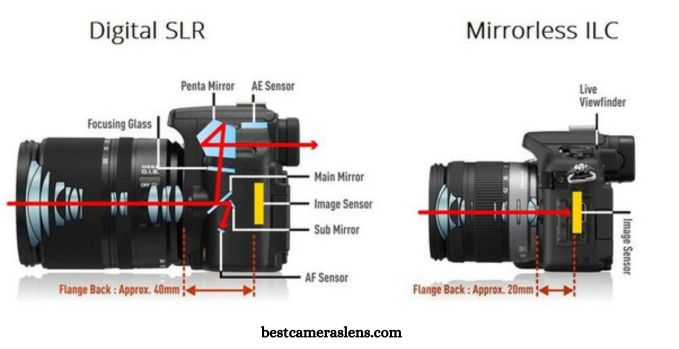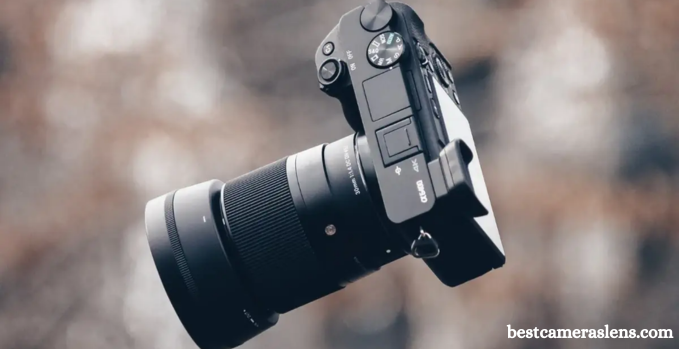Are you curious about the cross-compatibility of lenses between DSLR and mirrorless cameras? Dive into the world of photography gear as we explore the intriguing question: Do DSLR lenses work on mirrorless cameras? Join us on this journey to unravel the possibilities and limitations when mixing these two camera systems. Let’s discover how you can expand your lens collection and unleash your creativity in new ways!
Understanding Lens Mounts: DSLR vs Mirrorless
When it comes to DSLR and mirrorless cameras, one crucial aspect to consider is the lens mount. The lens mount determines which lenses are compatible with a particular camera body. In the realm of DSLRs, popular brands like Canon and Nikon have established their unique lens mounts over the years.
On the other hand, mirrorless cameras have a more compact design due to the absence of a mirror mechanism found in DSLRs. This difference in design also translates into variations in lens mounts between the two types of cameras. Mirrorless cameras often feature shorter flange distances, allowing for smaller and lighter lenses compared to traditional DSLR counterparts.

When considering using a DSLR lens on a mirrorless camera, it’s essential to be mindful of potential compatibility issues arising from differing lens mounts. Adapters can sometimes bridge this gap but may impact autofocus performance or limit functionality.
Compatibility of Lenses between DSLRs and Mirrorless Cameras
When it comes to the compatibility of lenses between DSLRs and mirrorless cameras, there are some key factors to consider. One of the main differences lies in the lens mount design. DSLRs typically have a larger flange distance compared to mirrorless cameras, which can affect how well a lens will fit and function on each type of camera.
However, with the use of adapters, many DSLR lenses can be mounted onto mirrorless cameras. These adapters help bridge the gap between different mount types, allowing photographers to expand their lens options when using a mirrorless camera.
It’s important to note that while most DSLR lenses can physically attach to a mirrorless camera using an adapter, not all functions may work seamlessly. Autofocus speed and accuracy could be impacted, as well as features like image stabilization.
Understanding the compatibility between DSLR lenses and mirrorless cameras opens up new possibilities for photographers looking to experiment with different equipment setups.
Benefits and Limitations of Using a DSLR Lens on a Mirrorless Camera
When it comes to using a DSLR lens on a mirrorless camera, there are both benefits and limitations to consider. One major advantage is the opportunity to access a wide range of high-quality lenses designed for DSLRs. These lenses often offer excellent optical performance and versatility, allowing photographers to experiment with different focal lengths and apertures.
However, one limitation is the potential lack of autofocus functionality when adapting DSLR lenses to mirrorless cameras. While some adapters may support autofocus, others may require manual focus which can be challenging for fast-moving subjects or in low-light conditions. Additionally, using larger DSLR lenses on smaller mirrorless bodies may result in an imbalance in weight distribution.
Despite these limitations, many photographers find that the benefits outweigh the drawbacks when utilizing DSLR lenses on mirrorless cameras. Experimenting with different combinations can lead to unique creative opportunities and stunning imagery that showcases the best of both worlds.
Popular DSLR Lenses That Can Be Used on Mirrorless Cameras
If you’re looking to expand your lens collection for your mirrorless camera, you’ll be glad to know that many popular DSLR lenses can be used with mirrorless cameras through the use of adapters. One standout choice is the Canon EF 50mm f/1.8 lens, known for its affordability and excellent image quality. Another versatile option is the Nikon 70-200mm f/2.8 telephoto zoom lens, perfect for capturing crisp shots from a distance.
For wide-angle enthusiasts, the Sigma 35mm f/1.4 Art lens offers stunning sharpness and beautiful bokeh effects on mirrorless bodies. Landscape photographers may appreciate using the Tamron SP 24-70mm f/2.8 lens, renowned for its versatility across different shooting scenarios.
Whether you’re into portraits, wildlife photography, or macro shots, there’s a DSLR lens out there waiting to enhance your mirrorless camera experience.
Tips for Using DSLR Lenses on Mirrorless Cameras
When using DSLR lenses on mirrorless cameras, it’s essential to consider the differences in lens mounts. Adapters are key here – make sure to choose high-quality ones for seamless compatibility.
Before shooting, familiarize yourself with manual focusing techniques as some autofocus functionalities may not fully translate between camera systems. Take your time to adjust settings and experiment with different focal lengths for optimal results.
Keep in mind that using a DSLR lens on a mirrorless camera may affect the overall balance and size of your setup. Be prepared for potential changes in handling and stability while shooting.
To prevent any light leaks or flares, always double-check the connection between the adapter, lens, and camera body. Ensure everything is securely attached before capturing your shots.
Don’t be afraid to get creative! Mixing equipment from different systems can lead to unique artistic opportunities. Explore new perspectives and push boundaries when utilizing DSLR lenses on mirrorless cameras.
Conclusion
While DSLR lenses can work on mirrorless cameras with the help of adapters, it’s essential to consider the compatibility and limitations involved. Understanding lens mounts is crucial in ensuring a successful pairing between your DSLR lens and mirrorless camera. By being aware of the benefits and limitations, as well as knowing which popular DSLR lenses are compatible with mirrorless cameras, you can make informed decisions when expanding your photography gear. Remember to follow our tips for using DSLR lenses on mirrorless cameras to optimize your shooting experience. Embrace the versatility that comes with cross-system compatibility and explore new creative possibilities with your equipment.
